20 Natural Foods That Help With Constipation: Your Complete Guide
Are you tired of dealing with digestive discomfort? I understand how frustrating it can be when your body isn’t working as it should.
That’s why I’ve put together this comprehensive guide to foods that can help keep you regular.
Living with constipation can affect your daily life, mood, and overall well-being.
But here’s the good news: simple dietary changes can make a significant difference.
Whether you’re looking for quick relief or wanting to maintain long-term digestive health, these natural solutions can help.
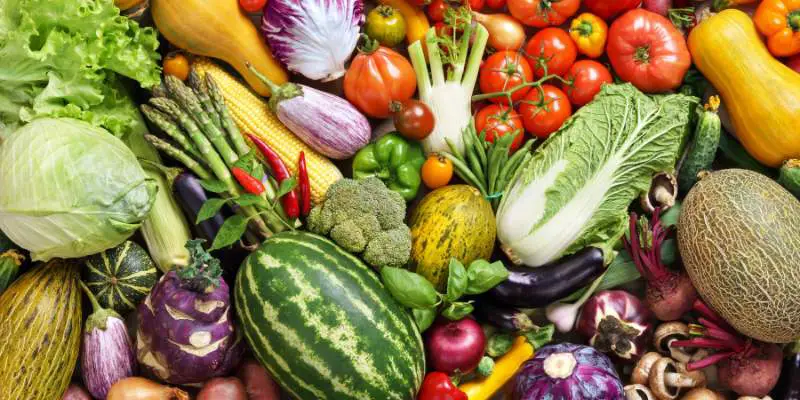
Fruits
Prunes
Prunes are nature’s digestive superheroes.
These dried plums are packed with fiber and natural compounds that help stimulate bowel movements.
What makes them especially effective is their high content of sorbitol, a natural sugar alcohol that draws water into your intestines.
I recommend starting with just 2-3 prunes daily to see how your body responds.
You can enjoy them as a snack, blend them into smoothies, or chop them up for your morning oatmeal.
These sweet dried fruits also support bone health and provide a good dose of antioxidants.
They’re particularly beneficial when consumed in the morning on an empty stomach.
Nutrition Info: Per 100g – Calories: 240, Protein: 2.2g, Carbs: 63g, Fiber: 7.1g, Fat: 0.4g, Potassium: 732mg, Vitamin K: 59.5mcg
Apples

The old saying “an apple a day” holds true for digestive health.
Apples contain pectin, a soluble fiber that acts as a prebiotic, feeding your good gut bacteria.
The combination of soluble and insoluble fiber in apples provides the perfect balance for healthy digestion.
Always eat them with the skin on – that’s where much of the fiber is concentrated.
You’ll get the best results by eating your apple either before meals or as a mid-afternoon snack.
This allows the fiber to work most effectively.
Nutrition Info: Per medium apple – Calories: 95, Protein: 0.5g, Carbs: 25g, Fiber: 4.5g, Fat: 0.3g, Vitamin C: 8.4mg
Pears

Pears are digestive powerhouses thanks to their high soluble fiber content.
They’re particularly effective because their fiber composition includes pectin and fructose, which naturally help move things along.
These juicy fruits are gentle on your system while being incredibly effective.
Like apples, the skin contains a significant portion of the fiber, so keep it on for maximum benefit.
For the best results, choose ripe pears that yield slightly to pressure.
You can eat them fresh, poached, or even add them to your morning smoothie.
Nutrition Info: Per medium pear – Calories: 101, Protein: 0.6g, Carbs: 27g, Fiber: 5.5g, Fat: 0.3g, Copper: 0.1mg
Kiwi

Kiwi fruits contain a unique enzyme called actinidin that helps break down protein and promotes digestive health.
They’re also rich in both soluble and insoluble fiber.
What makes kiwis special is their ability to work relatively quickly.
Many people notice improvements in their digestive regularity within a day or two of adding kiwis to their diet.
These fuzzy fruits are best eaten fresh and can be enjoyed at any time of day. Try having one or two kiwis as part of your breakfast or as an after-dinner treat.
Nutrition Info: Per 100g – Calories: 61, Protein: 1.1g, Carbs: 14.7g, Fiber: 3g, Fat: 0.5g, Vitamin C: 92.7mg
Figs
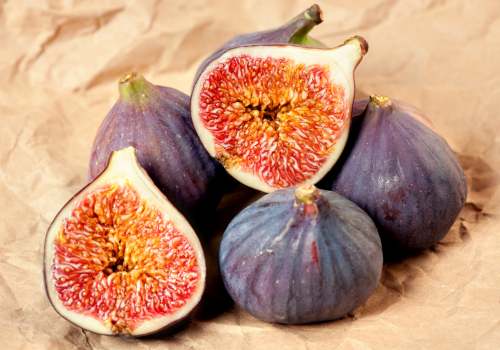
Fresh or dried, figs are exceptional for digestive health thanks to their unique fiber structure.
They contain a perfect blend of soluble and insoluble fiber, plus natural enzymes that aid digestion.
What sets figs apart is their high calcium content, which helps stimulate muscle contractions in your digestive system.
The seeds provide additional fiber and create a gentle scrubbing action in your digestive tract.
For best results, soak dried figs in water overnight to make them even more effective.
Fresh figs can be eaten as is or added to salads and breakfast bowls.
Nutrition Info: Per 100g (dried) – Calories: 249, Protein: 3.3g, Carbs: 63.9g, Fiber: 9.8g, Fat: 0.9g, Calcium: 162mg
Vegetables
Sweet Potatoes

Sweet potatoes are rich in both soluble and insoluble fiber, making them excellent for digestive health.
Their high fiber content works together with natural enzymes to promote regular bowel movements.
These orange-hued vegetables also provide a good dose of magnesium, which helps relax digestive muscles.
The natural sugars they contain feed beneficial gut bacteria.
For maximum benefit, keep the skin on when possible – it contains a significant portion of the fiber.
Roasting or steaming helps preserve their nutritional benefits.
Nutrition Info: Per medium sweet potato – Calories: 103, Protein: 2g, Carbs: 23.6g, Fiber: 3.8g, Fat: 0.2g, Vitamin A: 18,443 IU
Broccoli

Broccoli is a fiber-rich vegetable that’s particularly effective for digestive health.
It contains a special compound called sulforaphane that helps promote healthy gut bacteria.
The combination of fiber and natural compounds in broccoli helps create bulk and supports regular bowel movements.
It’s also rich in water content, which aids in moving things along.
Steam or lightly roast your broccoli to maintain its beneficial compounds.
Adding a small amount of healthy fat helps your body absorb its nutrients better.
Nutrition Info: Per cup (chopped) – Calories: 31, Protein: 2.5g, Carbs: 6g, Fiber: 2.4g, Fat: 0.4g, Vitamin C: 81.2mg
Spinach

Spinach is packed with insoluble fiber and magnesium, both of which are essential for healthy digestion.
The high water content in fresh spinach helps hydrate your digestive system.
This leafy green contains natural compounds that help reduce inflammation in your digestive tract.
Its high nitrate content helps improve blood flow to your digestive system.
You can enjoy spinach raw in salads, sautéed as a side dish, or blended into smoothies.
Adding a small amount of healthy fat improves nutrient absorption.
Nutrition Info: Per cup (raw) – Calories: 7, Protein: 0.9g, Carbs: 1.1g, Fiber: 0.7g, Fat: 0.1g, Iron: 0.8mg
Brussels Sprouts

Brussels sprouts are powerhouse vegetables for digestive health.
They’re rich in both soluble and insoluble fiber, plus special compounds that feed beneficial gut bacteria.
These mini cabbages help promote regular bowel movements through their fiber content and natural enzymes.
They also contain sulfur compounds that support detoxification.
Roasting or steaming Brussels sprouts makes them more digestible.
Start with small portions and gradually increase to allow your system to adjust.
Nutrition Info: Per cup – Calories: 38, Protein: 3g, Carbs: 8g, Fiber: 3.3g, Fat: 0.3g, Vitamin K: 156.4mcg
Carrots

Raw or cooked, carrots provide exceptional digestive support through their unique fiber composition.
They contain both soluble and insoluble fiber that work together to promote regularity.
These orange vegetables are particularly effective because they contain pectin, which helps bind excess water in the intestines.
Their natural sweetness comes from healthy compounds that support gut bacteria.
For maximum benefit, try consuming carrots both raw and cooked.
Raw carrots provide more scrubbing action, while cooked carrots are often easier to digest.
Nutrition Info: Per medium carrot – Calories: 25, Protein: 0.6g, Carbs: 6g, Fiber: 2g, Fat: 0.1g, Vitamin A: 10,190 IU
Grains & Seeds
Oatmeal
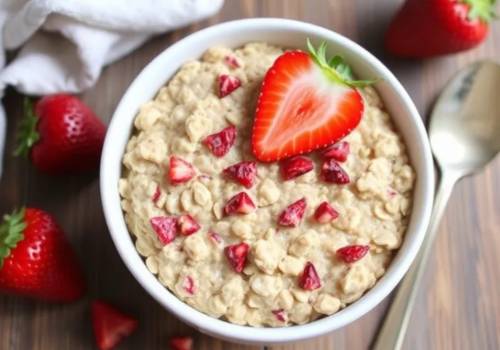
Oatmeal is a digestive powerhouse thanks to its high content of beta-glucan, a special type of soluble fiber.
This fiber creates a gel-like substance that helps move waste through your digestive tract.
What makes oatmeal particularly effective is its ability to absorb water and expand, creating bulk that stimulates natural movement.
It also provides sustained energy throughout the morning.
For best results, choose steel-cut or old-fashioned oats over instant varieties. Adding fresh fruits or seeds can enhance its digestive benefits.
Nutrition Info: Per cup (cooked) – Calories: 307, Protein: 10.7g, Carbs: 55.1g, Fiber: 8.2g, Fat: 5.3g, Iron: 3.4mg
Flaxseeds
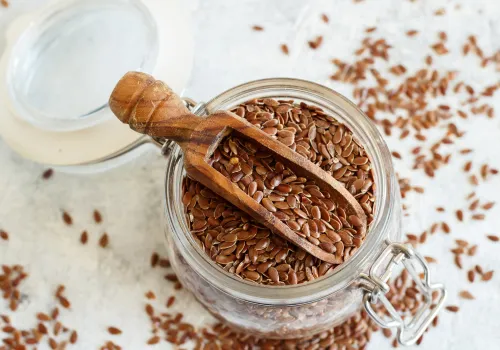
Flaxseeds are tiny powerhouses of digestive health.
They contain both soluble and insoluble fiber, plus natural oils that help lubricate the digestive tract.
These seeds work particularly well because they form a gel-like substance when exposed to water.
This helps soften stool and promotes easier passage.
Always grind flaxseeds before consuming them to access their benefits.
Add them to smoothies, yogurt, or sprinkle them on your morning cereal.
Nutrition Info: Per tablespoon (ground) – Calories: 37, Protein: 1.3g, Carbs: 2g, Fiber: 1.9g, Fat: 3g, Omega-3: 1,597mg
Chia Seeds
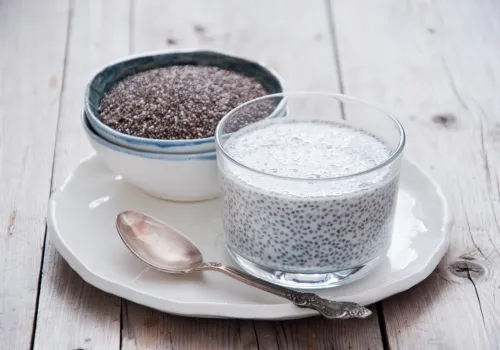
Chia seeds are remarkable for digestive health due to their ability to absorb up to 12 times their weight in water.
This creates a gel-like substance that helps move things along naturally.
These tiny seeds provide both soluble and insoluble fiber, creating the perfect combination for regular bowel movements.
They’re also rich in omega-3 fatty acids that support digestive health.
You can enjoy chia seeds in puddings, smoothies, or sprinkled on yogurt.
Always ensure they’re consumed with plenty of liquid to maximize their benefits.
Nutrition Info: Per ounce – Calories: 137, Protein: 4.4g, Carbs: 12.3g, Fiber: 10.6g, Fat: 8.6g, Calcium: 177mg
Quinoa

Quinoa stands out for its exceptional fiber content and complete protein profile.
Its fiber composition includes both soluble and insoluble types, supporting overall digestive health.
This ancient grain contains natural compounds that help reduce inflammation in the digestive tract.
Its protein content helps stabilize blood sugar levels, which can impact digestive regularity.
Cook quinoa thoroughly and rinse it before cooking to remove any bitter compounds.
It can be enjoyed as a breakfast porridge or as a base for lunch and dinner meals.
Nutrition Info: Per cup (cooked) – Calories: 222, Protein: 8g, Carbs: 39g, Fiber: 5g, Fat: 3.6g, Iron: 2.8mg
Brown Rice
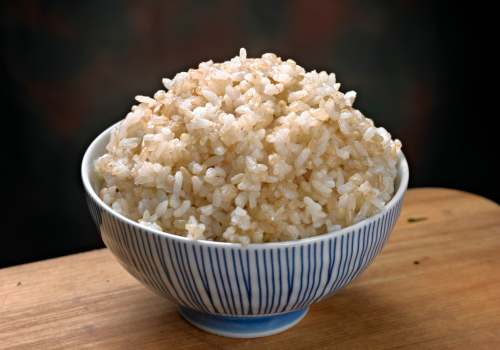
Brown rice provides steady digestive support through its high content of insoluble fiber.
This type of fiber helps create bulk and promotes regular bowel movements.
The bran layer of brown rice contains beneficial compounds that feed good gut bacteria.
Its slow-digesting nature helps maintain steady energy levels throughout the day.
For optimal digestion, ensure brown rice is cooked thoroughly and chewed well.
Pairing it with vegetables and lean proteins creates a balanced meal that supports digestive health.
Nutrition Info: Per cup (cooked) – Calories: 216, Protein: 5g, Carbs: 45g, Fiber: 3.5g, Fat: 1.8g, Magnesium: 86mg
Other Foods
Greek Yogurt

Greek yogurt is exceptional for digestive health due to its probiotics content.
These beneficial bacteria help maintain a healthy gut environment and support regular bowel movements.
What makes Greek yogurt particularly effective is its higher protein content compared to regular yogurt.
This protein helps balance digestive processes and supports overall gut health.
Choose plain, unsweetened varieties and add your own fresh fruits for natural sweetness.
Consuming it daily helps maintain a healthy digestive system.
Nutrition Info: Per cup – Calories: 130, Protein: 13g, Carbs: 9g, Fat: 0.7g, Calcium: 200mg
Beans

Beans are rich in both soluble and insoluble fiber, making them excellent for digestive health.
They contain resistant starch that acts as a prebiotic, feeding beneficial gut bacteria.
Their high fiber content helps create bulk while drawing water into the digestive tract.
This combination promotes healthy, regular bowel movements.
Start with small portions and gradually increase to allow your system to adjust. Proper soaking and cooking help make beans more digestible.
Nutrition Info: Per cup (black beans, cooked) – Calories: 241, Protein: 15g, Carbs: 44g, Fiber: 15g, Fat: 0.9g, Iron: 3.6mg
Lentils

Lentils are digestive champions thanks to their high fiber content and gentle nature.
They provide both soluble and insoluble fiber, creating an ideal environment for digestive health.
These legumes are particularly effective because they’re easier to digest than many other legumes.
They also provide steady energy and support healthy gut bacteria.
Cook lentils thoroughly and consider adding digestive spices like cumin or ginger. Regular consumption helps maintain digestive regularity.
Nutrition Info: Per cup (cooked) – Calories: 230, Protein: 18g, Carbs: 40g, Fiber: 15.6g, Fat: 0.8g, Iron: 6.6mg
Almonds
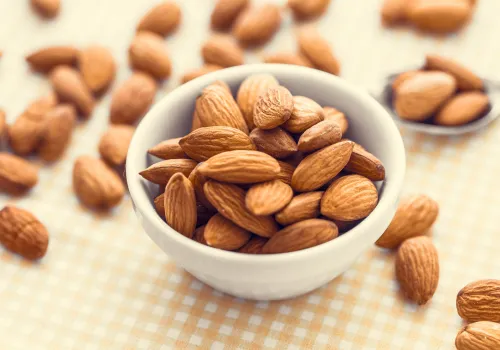
Almonds support digestive health through their combination of fiber, healthy fats, and protein.
Their fiber content helps promote regular bowel movements while their fats provide lubrication.
These nuts contain prebiotics that feed beneficial gut bacteria. Their protein content helps stabilize blood sugar levels, which can impact digestive regularity.
Consume almonds in moderation, starting with a small handful daily.
Soaking them overnight can make them easier to digest.
Nutrition Info: Per ounce (23 almonds) – Calories: 164, Protein: 6g, Carbs: 6g, Fiber: 3.5g, Fat: 14g, Vitamin E: 7.3mg
Green Tea

Green tea supports digestive health through its natural compounds and gentle caffeine content.
It helps stimulate natural movement while providing antioxidants that support gut health.
The polyphenols in green tea help reduce inflammation in the digestive tract.
Its mild caffeine content can help stimulate natural movement without being harsh.
Enjoy 2-3 cups daily, preferably between meals. Avoid drinking it on an empty stomach if you’re sensitive to caffeine.
Nutrition Info: Per cup – Calories: 0, Protein: 0g, Carbs: 0g, Fat: 0g, Antioxidants: Rich in catechins and EGCG
Final Thoughts
Incorporating these foods into your daily diet can significantly improve your digestive health and regularity.
Remember to introduce new foods gradually and listen to your body’s responses.
Stay consistent with your choices and combine these foods with plenty of water and regular physical activity.
Making these dietary changes can lead to long-term improvements in your digestive health and overall well-being.
Most importantly, give your body time to adjust to these new additions.
Everyone’s digestive system is unique, so what works best for you may require some experimentation.
